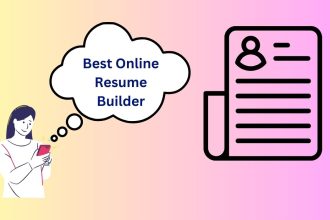The Art of Performance in the Workplace: Are We All Actors?
Have you ever felt like slipping into the character of someone else as soon as you step into the office? A friend of mine and I recently discussed how work feels like donning an acting mask to present an amiable demeanor. But once we’re on the bus ride home, those masks come off, allowing us to relax, breathe freely, and immerse ourselves in the quirky interests that define us.
There are times at work when jokes fly around that go right over my head, or simply don’t tickle my funny bone, yet I find myself chuckling along. It makes me wonder how our productivity might shift if we could reduce the casualness and focus more intently on completing tasks. My gut feeling is that we could accomplish a full workload in just five hours instead of eight, though perhaps this perception is colored by the dynamics of open-plan office environments.
Despite this, I view work through a gamified lens. These eight hours at the office are akin to playing a strategic game where acting and working result in tangible rewards—money. This allows me to enhance my personal growth and “level up” in life.
How do you perceive your work environment? Do you find parallels in your day-to-day routine, or do you see it differently? I’d love to hear your thoughts in the comments below!










2 Comments
Your reflection on the role of acting within the professional environment is both relatable and thought-provoking. Many people find themselves adopting certain personas to navigate various social situations at work, which often feels like an extension of our instinctive social strategies. Here are a few insights and pieces of advice on this topic:
Understanding Professional Persona: The need to put on a ‘work mask’ often stems from workplace culture and expectations. In many professional settings, showing friendliness and maintaining a certain level of decorum is encouraged to facilitate teamwork and communication. This doesn’t necessarily mean you’re being disingenuous; rather, you’re adapting to meet the social norms and expectations of that environment. It’s important to distinguish between adapting for professionalism and completely masking your identity. Finding a balance can help maintain authenticity without compromising professional relations.
Productivity and Office Dynamics: Open office spaces, while designed to foster collaboration, can sometimes blur the lines between focus and social interaction. This environment may perpetuate the need for some level of social ‘acting’, as it places you in close quarters with colleagues for extended times. To enhance productivity, it might be helpful to set personal boundaries. For example, using noise-cancelling headphones can signal to others when you’re focusing deeply, helping to manage those social expectations better.
Efficient Work Practices: Your observation about the potential productivity boost by reducing the ‘acting’ time resonates with the modern discourse on work efficiency. Implementing strategies such as time blocks, where you dedicate uninterrupted time slots to specific tasks, can be a game changer. This approach often leads to increased productivity, allowing you potentially to achieve more in less time.
Authenticity vs. Adaptability: While ‘leveling up’ in life — personally and professionally — is important, ensure it aligns with your sense of self. Adopt a mindful approach to how much of yourself you choose to share or conceal at work. Consider ways you can infuse a bit of your unique personality into your professional interactions. This might mean sharing your hobbies with close colleagues, or gradually introducing elements of your ‘outside-of-work’ self into conversations and presentations.
Re-evaluating Work’s Role in Life: Viewing work as a game or a means to an end can be a healthy way to maintain perspective. However, try reflecting on what aspects of your work bring you joy or personal development outside of the financial rewards. Embedding elements of personal satisfaction in your work can reduce the need
This is such an intriguing perspective on the workplace! I completely resonate with the idea of “acting” in a professional setting. Many of us adopt roles that may not fully align with our true selves, often due to the expectations of corporate culture. This can lead to a kind of emotional labor that can be both exhausting and rewarding.
Interestingly, research supports your notion about the impact of workplace dynamics on productivity. When people feel they can be authentic, they tend to be more engaged, which might indeed lead to accomplishing more in less time. It raises the question: how can we foster environments that encourage authenticity instead of performance?
Introducing more opportunities for informal interactions and allowing for greater flexibility in how we express ourselves could be one way to create this culture. By reducing the need for ‘masking,’ we might not only enhance individual productivity but also improve overall team morale and collaboration.
I’d love to hear if anyone has experienced this shift in their workplace or if they have suggestions for how to create a more authentic culture at work!